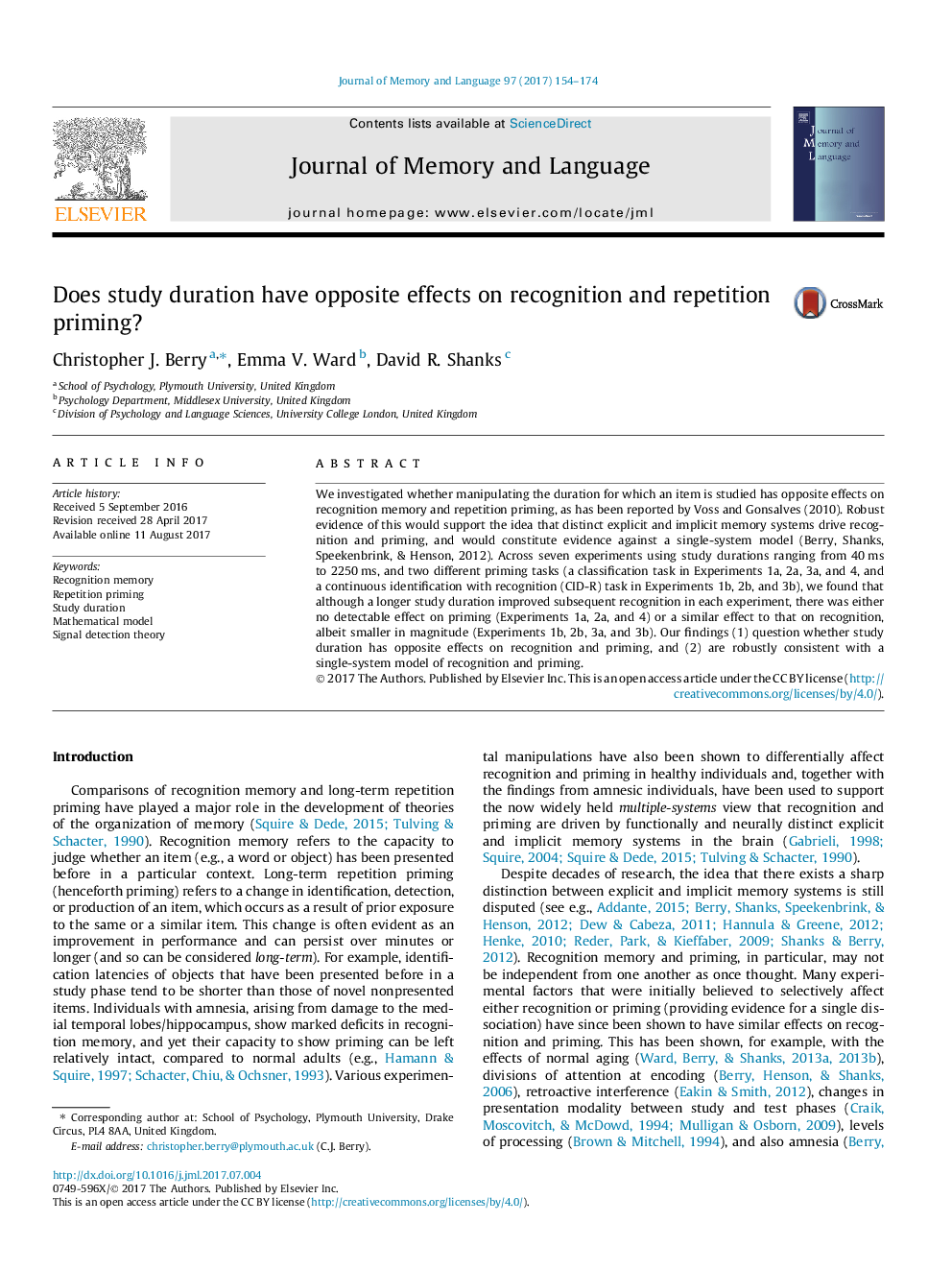| کد مقاله | کد نشریه | سال انتشار | مقاله انگلیسی | نسخه تمام متن |
|---|---|---|---|---|
| 5042581 | 1474622 | 2017 | 21 صفحه PDF | دانلود رایگان |
- Longer study durations improved recognition memory.
- Longer study durations also improved repetition priming or had no effect.
- The findings question whether study duration has opposite effects on recognition and priming.
- The findings are robustly consistent with a formal single-system model.
We investigated whether manipulating the duration for which an item is studied has opposite effects on recognition memory and repetition priming, as has been reported by Voss and Gonsalves (2010). Robust evidence of this would support the idea that distinct explicit and implicit memory systems drive recognition and priming, and would constitute evidence against a single-system model (Berry, Shanks, Speekenbrink, & Henson, 2012). Across seven experiments using study durations ranging from 40Â ms to 2250Â ms, and two different priming tasks (a classification task in Experiments 1a, 2a, 3a, and 4, and a continuous identification with recognition (CID-R) task in Experiments 1b, 2b, and 3b), we found that although a longer study duration improved subsequent recognition in each experiment, there was either no detectable effect on priming (Experiments 1a, 2a, and 4) or a similar effect to that on recognition, albeit smaller in magnitude (Experiments 1b, 2b, 3a, and 3b). Our findings (1) question whether study duration has opposite effects on recognition and priming, and (2) are robustly consistent with a single-system model of recognition and priming.
Journal: Journal of Memory and Language - Volume 97, December 2017, Pages 154-174
